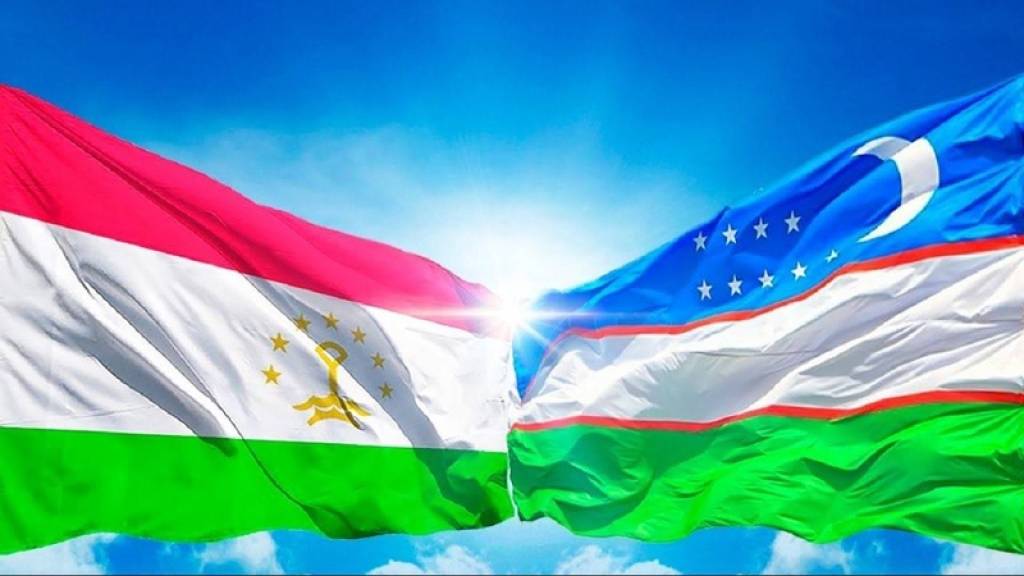
In recent years, relations between Uzbekistan and Tajikistan have improved significantly thanks to the efforts of Presidents Shavkat Mirziyoyev and Emomali Rahmon. The countries actively interact in various fields, including politics, economics, culture, and regional security.
Diplomatic relations between Uzbekistan and Tajikistan were established on October 22, 1992. Today, Uzbekistan maintains close ties with the neighboring country primarily through trade and economic activities, demonstrating steady growth over the past five years. In 2024, trade turnover between the countries aims to reach $1 billion, which, against the current volume of $757 million in 2023, represents an increase of 32%. As experts emphasize, improving infrastructure, simplifying trade procedures and increasing financing are essential for further developing economic partnership.
Also, one of the key components of bilateral cooperation is the energy sector, which is especially important considering the hydropower potential of both countries and the location of significant water resources in Central Asia.
Joint projects in this area, such as the construction of the 140-megawatt Yavan hydroelectric power station and the 135-megawatt Fondaryo hydroelectric power station, not only increase Tajikistan’s production capacity, but also contribute to the region’s sustainable energy supply, including through the export of surplus energy to Uzbekistan.
At the same time, Turkmenistan’s proposals for the transit of electricity and natural gas through Uzbekistan territory to Tajikistan strengthen interstate ties and Uzbekistan’s strategic position as a regional energy hub. The proposal to increase petroleum product exports to Tajikistan also reflects the deep integration and co-dependence of the region’s countries on energy cooperation.
Tajikistan plans to import more than 250 million cubic meters of Uzbek natural gas this year. Last year, imports amounted to 219 million cubic meters, 26.5 million more than the previous year. The primary gas recipients are Tajik Aluminum Company OJSC (TALCO), Azot OJSC, and the Dushanbe-2 thermal power plant.
Strengthening the energy partnership between Uzbekistan and Tajikistan is critical in ensuring energy independence and stability for these two countries and the entire Central Asian region. Collaborative management of energy resources promotes energy efficiency, economic growth, and environmental sustainability.
Equally important is the development of cross-border commercial and industrial zones. This involves creating capacities capable of meeting the needs of both countries and entering the markets of third countries. Plans to organize such zones near the Oybek and Fotekhobod checkpoints include the construction of production enterprises and logistics infrastructure, which will significantly simplify the process of exporting and importing goods, especially in the agricultural and industrial sectors.
Significant progress has been made in the automotive and tire industries. Uzbekistan and Tajikistan are working to launch joint projects to produce cars and tires based on the Tajik aluminum plant TALCO. These measures will help develop local industry and create new jobs.
An upward trend in the export of paper and cardboard from Uzbekistan to Tajikistan was also noted. In 2024, supply volumes reached 4.7 thousand tons, 1.3 thousand tons more than in the previous year. This underlines Uzbekistan’s growing role as an important exporter of paper products in the region, meeting the growing demand of states for quality packaging and stationery materials.
It is no secret that water resource management is one of the most important and sensitive aspects of cooperation between Uzbekistan and Tajikistan. The countries share several major rivers, including the Amudarya and Syrdarya, vital water sources. These rivers feed agricultural land and serve as the basis for hydropower production, especially in Tajikistan.
In recent years, both sides have worked to harmonize efforts to manage water resources effectively. This includes data exchange, monitoring of water bodies, and coordination of water use in the irrigation and energy sectors. An example of such work is the modernization and reconstruction of the Patar and Sarvat hydro posts along the Great Fergana Canal.
Despite significant advances, water management remains an area with a high potential for conflict, especially considering climate change, which may lead to reduced water availability in rivers. Therefore, continuing dialogue, strengthening joint scientific research, and developing adaptive water resource management strategies are essential for long-term cooperation between Uzbekistan and Tajikistan.
Strengthening the partnership between Uzbekistan and Tajikistan in defense and counter-terrorism is vital to shaping the economic and political landscape of the region. This includes joint military exercises, conflict resolution and threats in Afghanistan, intelligence sharing, and coordinated border security efforts, especially considering geopolitical shifts.
Both sides regularly meet on the sidelines of international forums devoted to security issues, demonstrating their desire to cooperate and coordinate efforts to solve everyday challenges. In this regard, their recent participation in the International Military-Practical Conference of the leadership of air defense forces of the CIS countries in Tver (Russia) is indicative.
The upcoming visit of Shavkat Mirziyoyev to Tajikistan will activate large-scale economic and political processes that will positively impact the region’s stable development and create a platform for new economic initiatives. It is planned to reach agreements on the launch of joint ventures, infrastructure projects, and trade agreements designed to improve regional ties and attract foreign investment, ultimately changing Central Asia’s economic dynamics.
Abduaziz Khidirov, UzA








